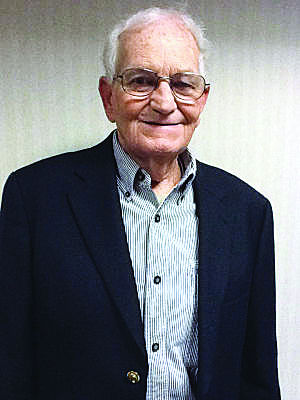Authors Note: This the second of two articles written in observation of Recovery Month, which takes place each September, and in which we honor and give recognition to all of those individuals and their families in recovery from mental illness and addictions; and those clinicians and other providers who give them care and concern on their recovery journey.
We are now in the midst of National Recovery Month. As I wrote last week, National Recovery Month is recognized throughout the month of September, and gives recognition to those individuals and families in recovery from Mental Illness and Substance Use Disorders, and also pays homage to all those who provide their dedicated and untiring care; the Licensed Chemical Dependency Counselors and Licensed Professional Counselors, the physicians and psychologists, the social workers; and so many, many more.
The recovery process for individuals and their families suffering under the yokes of mental illness and/or substance use disorders is a lifelong strife. Mere “treatment” of their illnesses is not an ample factor, and many times is no more than a “band-aid” approach; medication for stabilization of their mental illness symptoms, and/or detoxification from a chemical substance are most essential, but does not provide for a process of life-long recovery efforts.
Recovery also goes way beyond “after-care” plans as well, which also do not take into account many other recovery modalities; as we know that the diseases of Mental Illness and Substance Use Disorders are non-curable, yet manageable…they require life-long strategies and goals.
In keeping with this philosophy, the Recovery Oriented Systems of Care (ROSC) was developed.
Under the auspices of the Texas Department of Health and Human Services (TXDHHS), Recovery Oriented Systems of Care (ROSC) were developed in all the regions of the State. In the Rio Grande Valley Region, the first agency to begin the movement, the Rio Grande Valley Recovery initiative, was Behavioral Health Solutions of South Texas; with their first kick-off meeting taking place in 2011.
This was a collaborative effort with the major cities in the Valley, and also included Laredo. They established work groups to address treatment services, recovery support services, public policy, and consumer and client perspective. Behavior Health Solutions of South Texas, taking the lead initiative for the ROSC, continues to organize regular meetings and to provide recovery support services for the Valley communities.
Another agency, and most historical in the treatment of Alcohol and other drug abuse, is the Recovery Center of Cameron County (RCC, Inc.), which actually began in the county in 1989. As the name of the Center implies, “Recovery” is at the top of their agenda and of their philosophy.
Under the leadership of the Center’s Executive Director, and Lead Counselor, Mr. Cesar Garcia, the center provides out-patient care to those addicted to alcohol and other drugs, and also treats those with a diagnosis of depression.
With clinics in Brownsville and Harlingen, the Center insures the recovery of hundreds of clients and family members per year.
I would most certainly be amiss if I do not mention Tropical Texas Behavioral Health Systems as well. Long known for their recovery efforts, you can rest assured they are doing an excellent job in assisting clientele into the Recovery effort. Under the leadership of Mr. Stephen O. Vega in the Substance Use Disorders division, many individuals and their families receive the care and concern they most surely deserve.
The Mental Health division also is part and parcel of the on-going recovery efforts of those with Mental Illnesses.
With all of the efforts of insuring individuals and families suffering from Mental Illness and Substance Use Disorders, It is most paramount that we look at the actual beginnings of the real recovery movement. All of our treatment centers have at their core the principles and practices of the program of Alcoholics Anonymous. Alcoholics Anonymous had its beginnings as a self-help movement through a collaborative effort of Dr. Bob Smith and Mr. Bill Wilson in Akron, Ohio, in 1935.
These men, who attended Oxford Groups, whom professed that one must surrender to a higher power, and “at the root of all problems were the personal problems of fear and selfishness;” developed a program of life-long recovery from Alcoholism; writing it out in a book titled “Alcoholics Anonymous,” AA, with the inclusion the 12 steps of recovery.
The book “Alcoholics Anonymous,” has been since translated into all of the major languages of the world, and 12-step meetings are held in practically all of the countries of the world; with millions of individuals in recovery.
Over the years many sanctioned “off-shoot” groups have been developed, to include Emotions Anonymous, Narcotics Anonymous, Cocaine Anonymous, Overeaters Anonymous, etc. Through attendance of the 12-step meetings, and through the teachings of the Big Book, individuals may develop not only a life-long personal program of recovery, but find solace and peace within themselves to life a satisfactory life.
Treatment initiatives and programs may come and go, but AA and its sister groups remain steadfast; as a beacon of hope to millions as they continue on their journey of recovery. Their groups mantras of “one day at a time,” and “it works if you work it,” are time tested.
I remember one group member telling me once that, “AA is likened to a Merry-go-round. If you stand on the edge of it, you are likely to be thrown off; but if you ride on the horse on the inside you will be safe and secure; and enjoy the ride.” AA and its affiliate groups are numerous in our Rio Grande Valley area, and one only need check the community listings in this newspaper to find the group location and meeting times.
Yes my friends, Recovery Month is an auspicious occasion; offering hope for those suffering from Mental Illness and Substance Use Disorders, that they may suffer no longer.
Let us always keep in mind that it is a community effort. Until Next Time, Stay Healthy My Friends!





